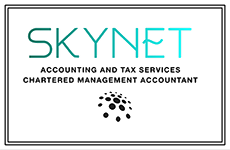HMRC wins big in “tax on gifts” case
Bernie Ecclestone’s lawyer faces a massive tax bill following the First-tier Tribunal’s (FTT’s) ruling that sums he received as gifts were income. What made the FTT decide the payments were taxable?

Over a period of 14 years Bernie Ecclestone’s former wife, Slavica, made payments totalling around £37 million to Stephen Mullens, Ecclestone’s lawyer. He claimed these gifts resulted from their "personal relationship of friendship and affection" and that they were wholly outside and distinct from any business relationship. Despite hearing evidence of Mrs Ecclestone’s generosity and a document purporting to be a deed of gift relating to a payment in 2006, the FTT considered all the payments, apart from one, were actually a reward for professional services provided by Mullens.
It is possible for a payment to be a gift, and so not taxable as income, even where a business relationship exists between the payer and the recipient, but the burden of proof is high. Mullen’s case was hindered because neither Bernie Ecclestone nor his former wife gave evidence. The FTT judges said they had no hesitation in deciding that Mullens had acted fraudulently in not declaring the payments and then representing them as gifts.
The FTT also ruled that because of Mullen’s deliberate action to hide the payments HMRC was entitled to make back-assessments under the rules of discovery. These give HMRC more time (up to 20 years) in cases of tax lost because of fraud compared with that lost from carelessness.
Related Topics
-
Simpler Recycling rules take effect
New rules on how workplaces must sort their waste and recycling have taken effect from 31 March. What are the key changes to be aware of?
-
New CGT reporting tool
Self-assessment returns aren’t set up for the change in capital gains tax (CGT) rates on the government filing system and will require a manual adjustment for 2024/25 to ensure the correct amount is paid. Why is there a problem and can a new online tool help?
-
MONTHLY FOCUS: THE ENTERPRISE INVESTMENT SCHEME QUALIFYING CONDITIONS
The enterprise investment scheme (EIS) is a generous collection of tax reliefs aimed at encouraging private investment into relatively young companies. In this Focus, we look at the qualifying conditions relating to the investor and the issuing company that must be met in order for a claim for relief to succeed.





 This website uses both its own and third-party cookies to analyze our services and navigation on our website in order to improve its contents (analytical purposes: measure visits and sources of web traffic). The legal basis is the consent of the user, except in the case of basic cookies, which are essential to navigate this website.
This website uses both its own and third-party cookies to analyze our services and navigation on our website in order to improve its contents (analytical purposes: measure visits and sources of web traffic). The legal basis is the consent of the user, except in the case of basic cookies, which are essential to navigate this website.